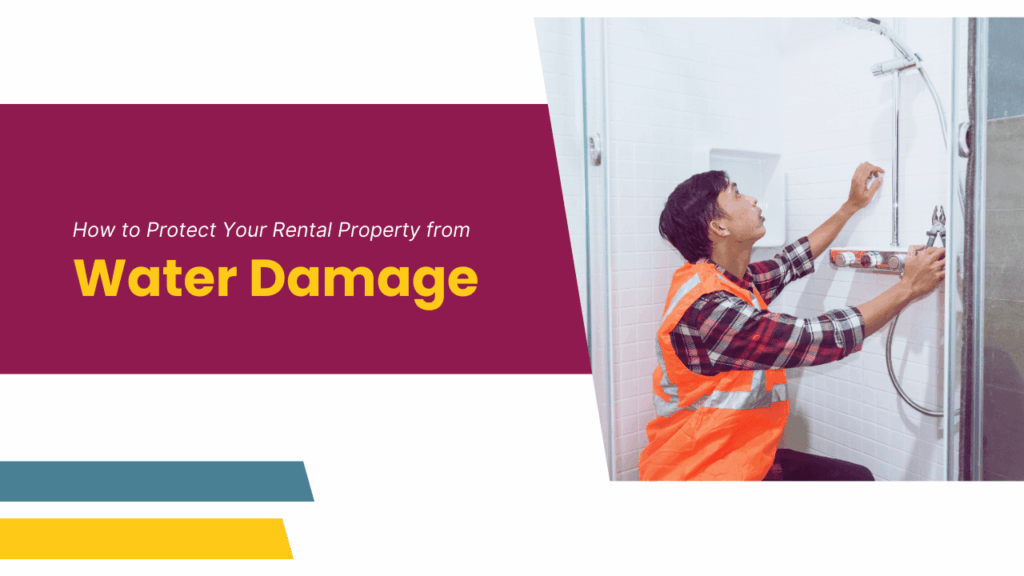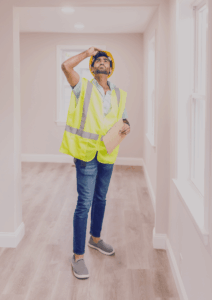
Is your rental property safe from water?
We know that water damage may not be the first risk that comes to mind for landlords in a desert city like Las Vegas. However, nothing can damage a property faster than water. And, despite the arid climate, water damage is one of the most common and costly issues rental property owners can face. From flash floods during monsoon season to leaky plumbing and malfunctioning appliances, the potential sources of water intrusion are numerous and varied.
Worse still, water damage not only harms your property but can also lead to mold growth, structural deterioration, and tenant dissatisfaction, all of which can result in legal liabilities and expensive repairs.
As a property owner in Las Vegas, proactive measures are your best line of defense. As Las Vegas property management experts, we have seen the problems that can grow out of control when water takes hold in a rental property. We’ve put together some tips on how to protect your property from this type of damage. Join us as we explore practical, preventative strategies to help you safeguard your rental property from water damage, preserve your investment, and ensure tenant satisfaction year-round.
Understand Las Vegas’s Unique Risks
Though Las Vegas is known for its dry climate, it is not immune to water-related hazards. In fact, water damage in Vegas can often catch landlords off guard. You’ll find the worst risks are due to:
- Flash Flooding. Las Vegas averages just over four inches of rain annually, but storms can dump large volumes of water in short periods during monsoon season (typically July to September). Urban development and hardscaped surfaces lead to rapid runoff and potential flooding. Things can get out of control before you even realize what’s happening.
- Aging Infrastructure. Many homes in the Las Vegas Valley were built during the construction booms of the 1980s, 1990s, and early 2000s. Older plumbing systems may be at risk of leaks, pipe bursts, or corrosion. Consider upgrades and updates when you can.
- Hard Water Issues. Las Vegas water is mineral-heavy, which increases wear and tear on pipes, water heaters, and appliances. This is something to watch for during preventative walkthroughs and service calls.
- Poor Drainage Systems. Some neighborhoods have inadequate stormwater drainage, making low-lying homes more vulnerable to flooding.
Recognizing these risks helps you create a targeted plan to prevent water damage.
Inspect Your Roof and Gutters Annually
Infrequent but intense rainfall can exploit any weakness in your property’s roof. A compromised roof can allow water to seep into ceilings, walls, and insulation, leading to mold and costly repairs. We recommend that Las Vegas rental property owners schedule an annual professional roof inspection, ideally before monsoon season. You’ll want to replace cracked or missing shingles, and repair deteriorated flashing. If you’re renting out a property with a flat roof, which is common in Las Vegas, you want to make sure there’s no pooling water or punctures.
We know a lot of owners don’t bother cleaning gutters and downspouts regularly. Do it to ensure water is directed away from the property’s foundation. You might want to consider installing gutter guards to prevent debris buildup and extend the time between cleanings.
Seal Windows, Doors, and Foundation Cracks in Your Las Vegas Rental Property
Even small gaps around windows, doors, and foundation walls can let water into your property during heavy rains or sprinkler overspray. Preventive measures include:
- Applying weather stripping and caulking around windows and doors.
- Using expanding foam or hydraulic cement to seal minor foundation cracks.
- Checking that door thresholds and window wells are properly installed and sloped to shed water.
Keeping your property well-sealed also boosts energy efficiency, which is a bonus in the long, hot Vegas summers.
Install a Sump Pump or Backwater Valve (If Applicable)
While not every Las Vegas property will need a sump pump, homes located in low-lying areas or older subdivisions with poor drainage may benefit from one. Likewise, backwater valves prevent sewage from backing up into your rental property through drain lines during storm events. Consult a plumber to evaluate whether your property would benefit from a sump pump or backwater valve. If a sump pump is installed, test it regularly and keep a battery backup system in place.
Maintain and Upgrade Plumbing Systems
Indoor leaks rather than storms are the most common cause of water damage in Las Vegas rentals.
A cracked pipe, leaking water heater, or faulty connection can dump gallons of water before anyone notices. Make sure you have some best practices in place to protect your property. These might include:
- Annual Plumbing Inspections. Have a licensed plumber inspect all exposed pipes, water heaters, and fixtures.
- Replace Old Supply Lines. Upgrade plastic or rubber water supply lines under sinks and behind washers with braided stainless steel alternatives.
- Install Leak Detectors. There’s a lot of new technology that does a great job of protecting properties from maintenance nightmares. Smart leak detection devices alert you via smartphone the moment they detect a leak or unusual water usage.
- Insulate Pipes. Though Las Vegas doesn’t have harsh winters, pipes in uninsulated garages or crawl spaces can still freeze and burst during cold snaps. Pipe insulation is a low-cost solution.
Monitor and Maintain Appliances
Appliances are another frequent source of sudden and unexpected water damage.
Washing machines, refrigerators with ice makers, dishwashers, and water heaters all have water connections that can fail. Reduce the risk by inspecting appliance hoses every 6-12 months for signs of wear, bulging, or rust. Replace rubber hoses with reinforced braided lines.
Ensure that appliances like washers and dishwashers are installed on waterproof trays with drainage lines. We also recommend that owners consider replacing older water heaters every 10-12 years, especially in hard water areas like Las Vegas.
Grade the Landscape Properly
Let’s talk about landscaping. Water should always flow away from your building’s foundation. But poor landscaping can lead water to pool at the base of your property, increasing the risk of seepage or foundation damage.
Landscaping tips include:
- Ensure the ground slopes away from the house at a minimum 5% grade for the first 10 feet.
- Use rock or gravel beds under gutters and along perimeters to aid drainage.
- Keep sprinkler heads directed away from walls and windows.
- Install dry wells or French drains in areas with frequent pooling.
Prepare for Monsoon Season
Monsoon season brings short bursts of torrential rain, high winds, and potential flash floods. Being prepared before July hits is key. Do you have a seasonal preparation checklist? This can help. Our Las Vegas property management checklist looks like this for the homes we manage:
- Clear gutters and roof drains.
- Confirm storm drains near the property are not clogged (contact the city if necessary).
- Verify tenant insurance coverage includes water damage.
- Provide tenants with a checklist of what to do in case of flooding or leaks.
Educate and Involve Las Vegas Tenants
Your tenants are your first line of defense when you can’t be at the property. A tenant who knows what to look for and how to respond can prevent a minor leak from becoming a disaster. When you’re thinking about tenant engagement, include a water damage prevention addendum in the lease. Provide your residents with clear instructions on reporting leaks immediately.
Ask tenants to periodically check under sinks, behind appliances, and around windows for signs of moisture. We always recommend that you require or encourage the purchase of renter’s insurance. Water damage isn’t only a danger for your property; it’s a danger for their personal belongings, and your insurance won’t cover their electronics and furniture.
Conduct Regular Property Walkthroughs
 Consistent walkthroughs are the cornerstone of preventative maintenance.
Consistent walkthroughs are the cornerstone of preventative maintenance.
At New West Property Management, we are proactive about scheduling seasonal walk-throughs or post-rainstorm inspections to spot warning signs early. We are looking for water stains on ceilings or walls, musty odors that may indicate mold or mildew, and any buckling floors or sagging drywall. If there is corrosion around pipes or appliances, we’re going to have a plumber take a look right away.
Document findings and address issues promptly. It’s far more cost-effective to fix a small leak today than replace flooring and drywall tomorrow.
Prevention pays off.
In Las Vegas, the desert sun may dominate most of the year, but don’t let the dry climate fool you. There is water that is always looking for a way into your property. Water damage is a real and often hidden threat.
As a rental property owner, taking proactive measures to waterproof your property, educate tenants, and respond quickly to warning signs can save you thousands of dollars in repairs and lost rental income.
Water damage prevention is not just about protection. It’s about peace of mind. By investing in smart inspections, regular maintenance, and tenant collaboration, you ensure that your rental property remains a profitable and hassle-free investment for years to come.
We can help with this. Please contact us at New West Property Management. Our team expertly manages residential rental homes in Las Vegas and throughout Clark County, including Henderson and North Las Vegas.
